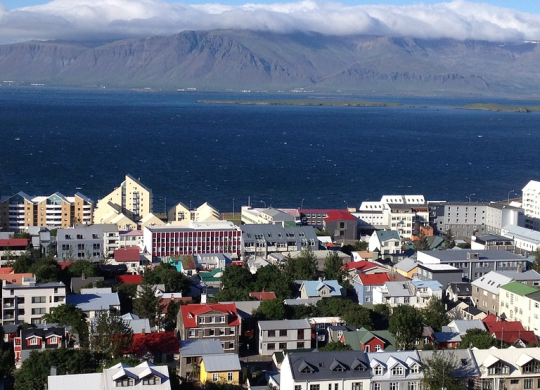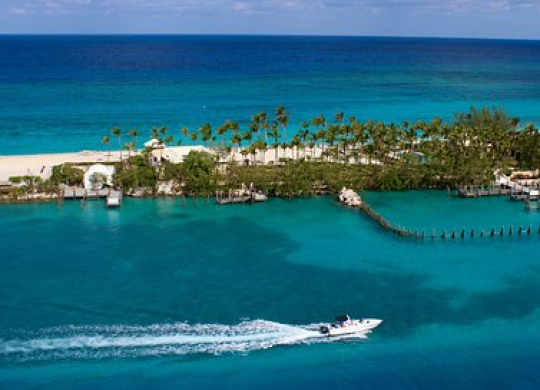Iceland is a leader in the quality of medicine. All about insurance and healthcare
Table of contents

We must admit that life in Iceland is better in terms of health than, for example, life in Italy... or even in France, according to the latest ranking of health "efficiency" of 188 countries.
According to a study published in The Lancet medical journal, Iceland ranked first in terms of health and the Central African Republic second. The United Kingdom ranked fifth, Spain seventh and Canada ninth. France ranked 24th, the U.S. 28th, and China 92nd. A total of 188 countries were tested.
Medical Insurance in Iceland
As health services are controlled and financed by the Icelandic state, the local authorities open the rights to health insurance (Sjukratryggingar Islands) to everyone who legally resides in Iceland, regardless of citizenship.
Iceland is divided into seven health care categories with one centre for each specialty (Heilsugaeslustod). Every citizen and resident is invited to register with a general practitioner in their area. Every hospital has at least one doctor available 24 hours a day, but all hospitals have an emergency service.
If you have been legally resident in Iceland for at least 6 months, you can join the Icelandic health insurance program. The Icelandic health insurance covers part of your medical expenses, as well as medication and a list of other specialties.
Minors (under 18) are also covered by their parents' health insurance. Note, however, that participating in health insurance in Iceland does not mean you don't have to pay a certain fee for medical services!
Primary and preventive outpatient care
How is treatment abroad structured in general and what do I need to travel to Iceland?
The initial thing to know is that no vaccinations are required to enter Iceland. The recommended vaccinations for adults are diphtheria, tetanus, polio, pertussis and hepatitis B.
Insured persons are free to choose a general practitioner from among those practising in public health centres and in the private sector approved by the Icelandic Health Insurance (Sjúkratryggingar Islands). Medical centres employ general practitioners or "family doctors", who are generally engaged in preventive medicine and curative medical care.
These centres must provide general medical services, nursing services, maternity and infant care, and mental health services, drug abuse and sexually transmitted disease prevention. General practitioners perform general medical examinations and usually have a good knowledge of their patients' medical history.
All health centres must provide:
- general medical services;
- nursing care;
- home care;
- nursing
- maternity care;
- health care and immunizations for infants and children;
- school health care;
- health promotion and prevention (prevention of sexually transmitted diseases, psychiatric care, alcohol and drug abuse prevention, smoking prevention, hearing and vision screening, obesity screening and disease research, prevention of infectious diseases, adolescent health care, geriatric care and accident prevention).
Primary health clinics can also offer specialized care (psychological services, occupational and physical therapy, nutritional counselling).
With regard to maternal and child care, the health centres, through their midwives and general practitioners, offer free prenatal care to all expectant mothers/parents. A number of procedures are offered to screen for diseases that may affect the health of the mother or baby.
Nurses play an important role in health centres and can be the first point of contact for patients. They perform both internal and external functions, participating in home care, especially for the elderly, and making home visits in connection with maternal and infant care. Nurses have professional autonomy and work in an administrative hierarchy independent of physicians.
Some health centres, especially in downtown Reykjavik, are currently fully occupied and are not accepting new patients. In this case, people are free to register at any health centre, but they must make sure that the family doctor or a specialist of their choice has a contract with social insurance. Doctors who do not have a contract with Social Security may cost more, and Social Security will not pay reimbursement. Those who cannot find a medical centre can call their local centre to make an appointment after 5:00 p.m. that day.
Pharmacies
Pharmacies are privately owned, and ownership is not limited to pharmacists. The Icelandic Medicines Agency issues licenses to pharmacies. Each pharmacy license is limited to one pharmacy, and the chief pharmacist is responsible for the professional activities of the pharmacy. A pharmacist may hold only one pharmacy license at a time.
Pharmacists are part of primary care services and as such provide medical advice. Pharmacists diagnose and treat minor infections and common problems. If you prefer to be treated by a doctor, a pharmacist can help you find one.
Recommended articles
5 min
Residence permit
4 min
Work
All materials and articles are owned by VisitWorld.Today and are protected by international intellectual property regulations. When using materials, approval from VisitWorld.Today is required.


